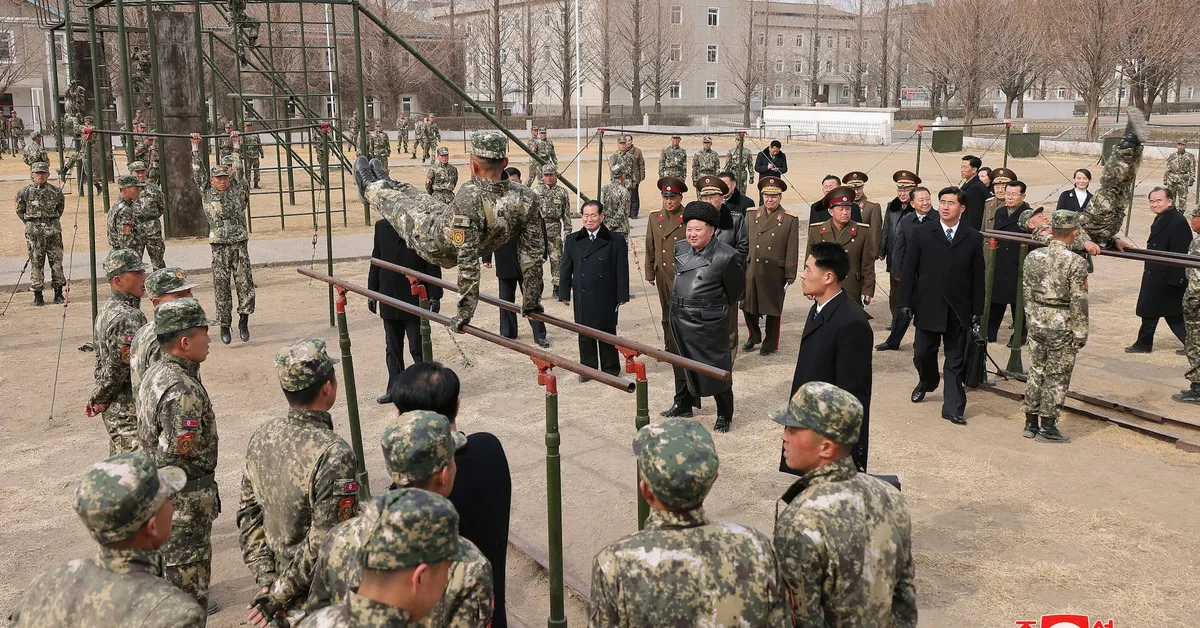
On April 28, 2023, North Korea made a significant announcement, confirming for the first time that it had deployed troops to support Russia in its ongoing war against Ukraine. This move was under the direct orders of North Korean leader Kim Jong Un, who asserted that their involvement had helped reclaim territory previously occupied by Ukraine, particularly in the Kursk region.
The Korean Central News Agency (KCNA) reported that the successful liberation of the Kursk region demonstrated the "highest strategic level" of the strong military friendship between North Korea and Russia. The report highlighted the importance of this partnership, which is rooted in a comprehensive strategic treaty signed by Kim Jong Un and Russian President Vladimir Putin in 2022. According to the Central Military Commission of the Workers' Party of North Korea, Kim's decision to send troops was made to reinforce this alliance.
KCNA emphasized that North Korean military units fought with the same level of heroism and determination as if they were defending their own homeland. Kim Jong Un described those soldiers as "heroes" who fought for justice and represented the honor of their nation.
The announcement drew swift condemnation from the U.S. State Department, which demanded an immediate cessation of North Korea's troop deployment and any support provided by Russia. A spokesperson stated that Russia had violated U.N. Security Council resolutions by training North Korean soldiers during the conflict. The spokesperson further noted that nations like North Korea, which have contributed to the ongoing Russia-Ukraine war, share in the responsibility for its continuation.
South Korea also reacted strongly to North Korea's confirmation of troop deployment, labeling it a "criminal act." Officials condemned the decision to send young North Koreans into battle, criticizing it as an inhumane and immoral choice aimed at bolstering the regime's stability.
The timing of North Korea's announcement, following more than six months of silence on the matter, was analyzed as a strategic move to enhance Kim's partnership with Putin. According to analysts, this confirmation underscores the need for both leaders to present a united front ahead of potential diplomatic engagements, including a summit meeting in Russia.
Reports indicate that North Korea has sent approximately 14,000 troops to assist Russia, with around 3,000 reinforcements to replace losses. Despite their lack of armored vehicles and experience in drone warfare, these troops adapted quickly to the battlefield conditions. Ukrainian Special Operations Forces reported on April 24 that they had killed a unit of 25 North Korean soldiers in Kursk, further illustrating the challenges faced by North Korean forces. A video released by Ukraine showed one of the slain soldiers alongside personal belongings, including a note written in Korean.
In addition to troop deployment, North Korea has allegedly supplied Russia with military equipment, including artillery munitions and ballistic missiles. This military cooperation has raised concerns among international observers regarding the implications for the ongoing conflict in Ukraine and the broader geopolitical landscape.
As the situation unfolds, the implications of North Korea's military involvement in Ukraine could further complicate international relations, particularly between the U.S., South Korea, and the nations involved in the conflict.